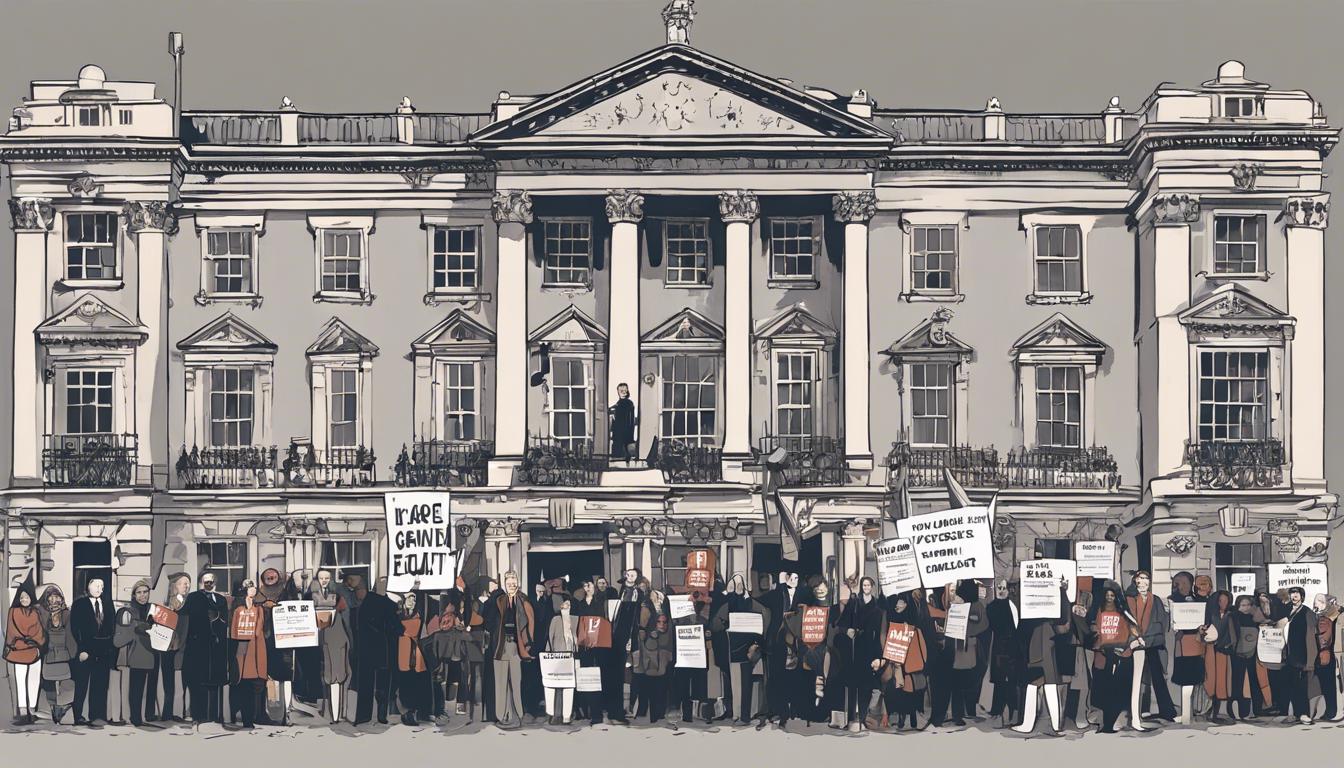The Garrick Club in London, an exclusive men-only establishment, has sparked widespread controversy and demonstrations, challenging its longstanding policy of excluding women from membership. Notable figures and professional bodies are now pushing for reform, highlighting a pivotal moment for gender equality within influential British circles.
In London, the Garrick Club, a prestigious and exclusive men-only establishment, faced protests and criticism for its policy of excluding women from membership. Demonstrations took place outside the club, involving notable figures such as Labour MP Apsana Begum and several lawyers, including barrister Dr Charlotte Proudman. They criticized the club for representing a bastion of privilege and power predominantly held by white men in influential positions. The protesters highlighted the contradiction of women being permitted as staff or guests but not as members, labeling it as “scandalous discrimination.”
The protest was sparked by the recent exposure of the club’s membership list, revealing it to consist of several high-profile figures from the legal profession and beyond. The club’s refusal to allow protesters, who were mostly women, to deliver a letter of condemnation directly was met with criticism, with a male ally eventually delivering the letter on behalf of the women.
In light of these events, the Bar Council has called upon its members to re-evaluate their association with the Garrick Club, questioning whether membership aligns with their professional values, especially concerning gender equality. This action underscores the broader societal debate on the perpetuation of inequalities by exclusive establishments like the Garrick Club.
Amid increasing pressure for change, a group of male members from the Garrick Club has nominated seven influential women for potential membership. These nominees include classicist Mary Beard, former Home Secretary Amber Rudd, Channel 4 News presenter Cathy Newman, actor Juliet Stevenson, Margaret Casely-Hayford, chair of the trustees of Shakespeare’s Globe, and former appeal court judge Elizabeth Gloster. This development followed public backlash and resignations over the club’s male-only membership policy and its resistance to admitting women since the 1960s.
The club’s management, led by chair Christopher Kirker, is currently reviewing new legal advice which suggests that admitting women as members is possible under existing rules. This consideration is viewed as a pivotal moment in promoting diversity and inclusivity within the elite institution, reflecting the potential for broader impacts on gender equality within influential UK circles.













